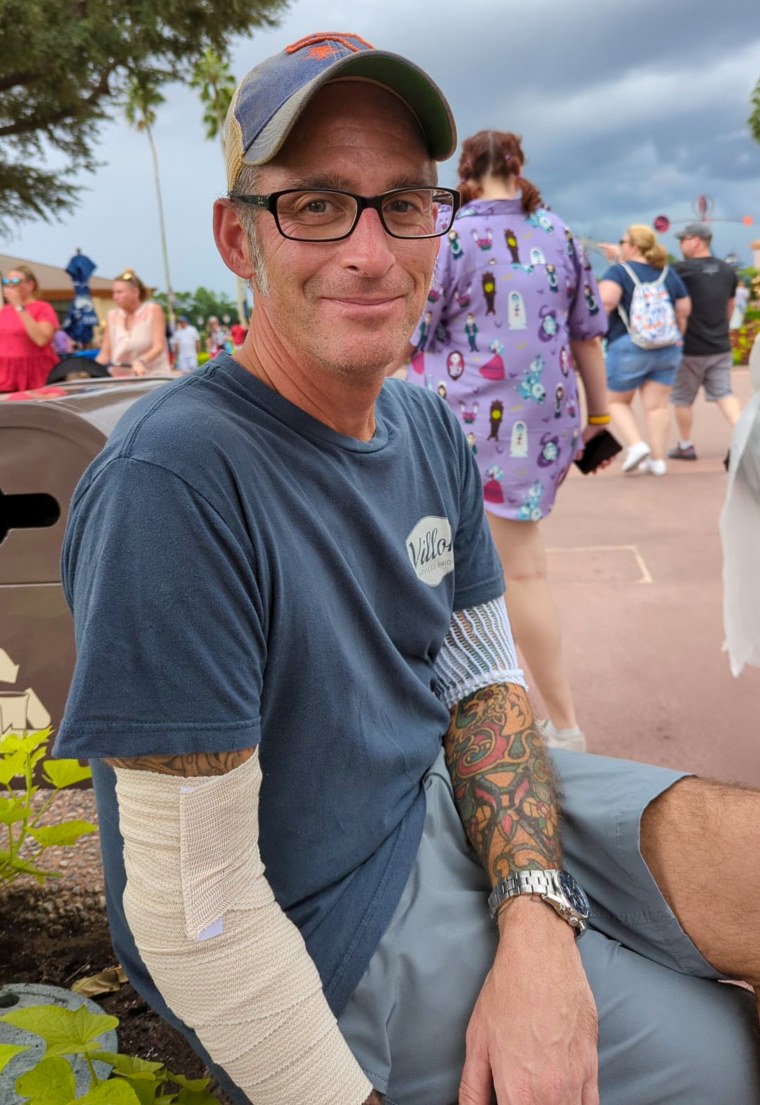Most recently, in August 2022, lawmakers passed the PACT Act, which expanded benefits to millions of veterans exposed to burn pits in Iraq and Afghanistan and other toxic substances. Before then, advocates said it was challenging for veterans to prove their sickness was related to their service in order to receive disability compensation.
“In both those instances, and for many other military toxic exposures, it took decades for the VA and Congress to finally act,” Wednesday’s report said. “Some died before achieving justice.”
Veterans exposed on U.S. soil have had to wait even longer.
In one of the largest water contamination cases in U.S. history, up to 1 million people who lived or worked at Camp Lejeune from 1953 to 1987 may have been exposed to a drinking water supply contaminated with chemicals that have been linked to severe health problems, including cancers and birth defects, federal health officials said.
In 2012, Congress passed a law that provided health care and other benefits to qualifying veterans who served at the U.S. Marine Corps training facility in North Carolina, as well as their families.
In response to the report, VA press secretary Terrence Hayes said the agency was “grateful for the feedback” from its partners and that it will “continue to work with them to fulfill our shared mission.”
“At VA, we make every decision with one goal in mind: provide Veterans with the care and benefits they’ve earned as quickly as possible,” Hayes said in a statement to NBC News.
“We’re currently delivering more care and more benefits to more Veterans than ever before,” he added. “But make no mistake — we will not rest until every Veteran gets the care and benefits they deserve.”
‘My health is at risk, and I can do nothing’
From 2001 to 2005, more than 15,000 service members deployed to the Karshi-Khanabad Air Base in Uzbekistan, known as K2, in support of the war in Afghanistan, officials said.
Those veterans may have encountered several hazardous exposures, including volatile organic compounds from jet fuel vapors and depleted uranium, the VA said on its website.
While at K2, Jackson noted in his journal that there were chemical dumping grounds around him and signs everywhere that warned of radiation. In the air, he wrote, there was a “smell of burning plastic” trash.
“My health is at risk, and I can do nothing,” he wrote on Aug. 9, 2003.

The PACT Act made all K2 veterans eligible for VA health care for every condition, the VA said, adding that more than 13,000 of them are currently enrolled. It also recognized that K2 veterans were exposed to burn pits and particulate matter, but not all toxic exposures, including depleted uranium.
That means veterans like Jackson have a higher burden to prove their illness was caused by toxic exposure during their military service while applying for disability, advocates say. Their claims are decided on a case-by-case basis, the VA said.
Last month, the VA announced it was taking steps to acknowledge that K2 veterans were exposed to several contaminants of concern. Hayes said the agency would continue working with the Defense Department to “ensure that we consider any additional hazards from K2.”
The agency said it is conducting a scientific review to determine whether there is a relationship between toxic exposures and three conditions — acute leukemias, chronic leukemias, and multiple myeloma outside of the head and neck — for service members who deployed to Uzbekistan and other locations.
The advocacy groups behind Wednesday’s report said the report provides a road map for legislative and policy changes that they say would shorten the recognition process.
They called on Congress to enact legislation to expand and fund research, monitoring, surveillance and oversight of all federal activities related to toxic exposures.
Jackson, who now works as a federal criminal investigator, said he would value the federal recognition over any amount of money.
“Living with symptoms is difficult,” he said, “but living without validation and causation of your symptoms is maddening.”



